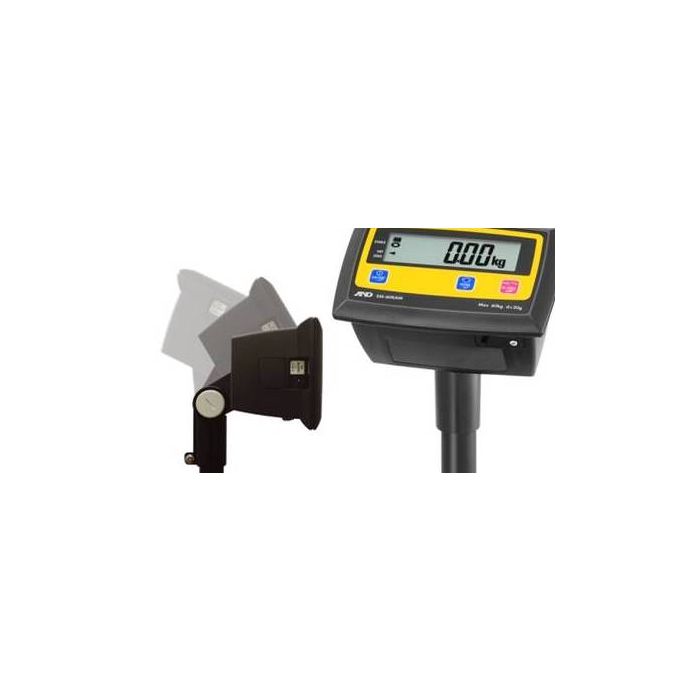Platform scales are versatile weighing instruments used across various industries and applications, from logistics and manufacturing to retail and healthcare. With a wide range of features, sizes, and capacities available, choosing the right platform scale can be a daunting task.
Understanding Platform Scales
Platform scales, also known as floor scales or industrial scales, are designed to weigh heavy objects or large quantities of goods accurately. They consist of a platform (usually made of stainless steel or durable materials) supported by load cells that measure the weight applied to the platform. Platform scales come in various configurations, including portable models with wheels for mobility and stationary models for fixed installations.
Key Features of Platform Scales
1. Weight Capacity:
One of the primary considerations when choosing a platform scale is its weight capacity. Scales range from small models capable of weighing a few kilograms to heavy-duty scales that can handle several tons of weight. Determine your specific weighing needs to select a scale with the appropriate weight capacity for your application.
2. Platform Size:
Platform scales come in different sizes to accommodate a variety of objects and materials. Consider the dimensions of the items you’ll be weighing to ensure the platform size is sufficient. For larger objects or palletized goods, opt for scales with spacious platforms to prevent overcrowding and ensure accurate measurements.
3. Accuracy and Precision:
Accurate weighing is crucial in many industries, especially for commercial transactions, inventory management, and quality control. Look for platform scales with high precision and accuracy levels, typically expressed as the scale’s resolution or readability. A scale with finer increments (e.g., 0.1 kg or 0.01 lb) offers more precise measurements, suitable for applications that require detailed weight readings.
4. Construction and Durability:
The construction quality and durability of a platform scale are essential factors, particularly in industrial environments. Choose scales with sturdy materials such as stainless steel for the platform and robust load cells for reliable performance under heavy loads. Consider factors like corrosion resistance, impact resistance, and protection against environmental factors like dust and moisture.
5. Display and Interface:
The display interface of a platform scale should be user-friendly and easy to read. Look for scales with bright LED or LCD displays that show weight readings clearly, even in dimly lit conditions. Some scales also offer additional features like tare functions, unit conversion, and built-in memory for storing weight data.
6. Power Source:
Platform scales can be powered by various sources, including batteries, AC power, or a combination of both. Battery-powered scales offer portability and flexibility for use in locations without access to power outlets. On the other hand, AC-powered scales provide continuous operation without the need for battery replacement or recharging. Choose a power source that suits your operational requirements and preferences.
7. Connectivity Options:
Modern platform scales often come equipped with connectivity options for data transfer and integration with other systems. Look for scales with USB ports, RS-232 interfaces, Ethernet connectivity, or wireless communication capabilities (e.g., Bluetooth or Wi-Fi). These features enable seamless data exchange, remote monitoring, and integration with software applications for enhanced functionality.
8. Calibration and Maintenance:
Regular calibration and maintenance are essential for ensuring the accuracy and reliability of platform scales. Consider scales with user-friendly calibration procedures, calibration weights, and built-in diagnostics for easy maintenance. Some scales also offer self-calibration features or automatic adjustment algorithms to minimize manual intervention and ensure consistent performance over time.
Benefits of Using Platform Scales
1. Accurate Weighing:
Platform scales provide accurate weight measurements, making them indispensable for precise inventory management, shipping, and receiving operations.
2. Efficiency and Productivity:
By streamlining weighing processes and reducing manual labor, platform scales improve efficiency and productivity in warehouse, manufacturing, and distribution environments.
3. Cost Savings:
Accurate weighing helps prevent errors, minimize waste, and optimize resource utilization, leading to cost savings and improved profitability.
4. Compliance and Quality Assurance:
Many industries have regulatory requirements for accurate weighing and quality assurance. Platform scales help businesses comply with standards and maintain consistent product quality.
5. Versatility and Flexibility:
Platform scales are versatile tools that can weigh a wide range of items, from small parcels to heavy machinery, providing flexibility for diverse applications.
Factors to Consider When Buying Platform Scales
1. Application and Industry:
Identify your specific weighing needs and the industry standards or regulations that apply to your operations. Choose a platform scale that meets the requirements of your application, whether it’s for shipping, manufacturing, retail, or healthcare.
2. Environment and Conditions:
Consider the operating environment and conditions where the scale will be used. Factor in aspects like temperature variations, humidity levels, exposure to dust or chemicals, and potential impact or shock loads.
3. Budget and Cost of Ownership:
Determine your budget for purchasing a platform scale and consider the total cost of ownership, including maintenance, calibration, and potential upgrades or accessories.
4. Future Expansion and Integration:
Anticipate future growth or changes in your weighing needs and choose a scale that allows for scalability, compatibility with existing systems, and integration with future technologies or software platforms.
5. Vendor Reputation and Support:
Research reputable vendors or manufacturers of platform scales and assess their track record, customer reviews, warranty coverage, and technical support services.
Also Read: Importance of a Weighing Scale In Different Industries
Conclusion
Platform scales are indispensable tools for accurate weighing and efficient operations in various industries. By understanding the key features, benefits, and factors to consider when buying platform scales, you can make informed decisions that align with your specific weighing needs, operational requirements, and budget constraints.
Whether you’re managing inventory, shipping goods, or ensuring compliance with industry standards, investing in the right platform scale can enhance productivity, reduce costs, and improve overall business performance.

